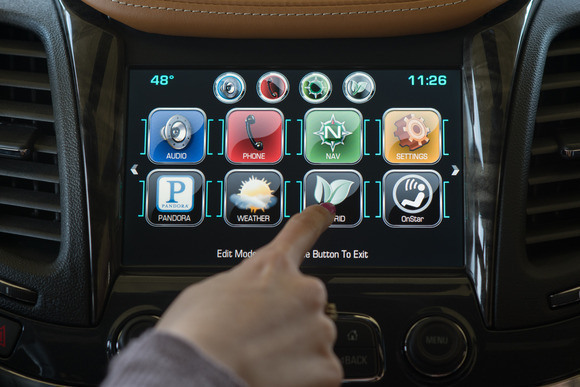Tech
Looking At How GPS Helps Fleet Companies Save Money On Fuel and Avoid Accidents

Companies that use trucks as instruments for their success in their respective businesses are one of the many types of private fleeting entities that have greatly benefitted from the use of global positioning systems (GPS). As it is, the use of this technology enhances overall productivity and efficiency of employees, who are mostly truck drivers. Various truck fleets that have been installed with GPS for the purpose of business efficiency include the following:
- Shipping trucks, or those big rigs or commercial tractor-trailers responsible for carrying cargo containers containing goods and other raw materials and important equipment to and from warehouses and ports.
- Delivery trucks, especially those used by companies who are in the food industry or in the package delivery industry.
- Service trucks, especially those providing utility services (e.g. electricity, water, natural gas).

GPS and how it Greatly Affects the Trucking Industry
There are two things that stand out with regards to the use of GPS technology within the trucking industry. One of them is that GPS car tracking is known to decrease fuel consumption. Businesses, as well as fleet managers, are aware of the skyrocketing prices of fuel. Knowing that fuel is an inevitable expense in the trucking industry, they continuously seek to find ways on how to save up when it comes to fuel.
With GPS being an effective tool for successfully managing fleets of trucks that many companies use for their businesses, the need to top up on fuel every now and then is lessened due to the technology’s ability to accurately monitor driving speeds of truckers and their idle times during their trips. Not only that, but the vehicle tracking qualities of GPS technology also allows fleet managers and businesses to take advantage of route optimization. Since it is the goal of businesses to get their trucks to their destinations in a timely manner, it is imperative that they get there using the most convenient routes possible without having to change courses on the fly. GPS can help optimize routes, thus saving on fuel and promoting overall efficiency of employees.
Another beneficial quality of GPS for truck fleets is that it helps avoid accidents on the road. Most truck accidents involve collisions with other passenger vehicles, and most of the casualties involve those riding or driving the latter. Given how the industry of trucking is receiving flak for their notoriety when it comes to accidents, they cannot afford to disregard not just the safety of their drivers, but the safety of other motorists. When vehicle accidents occur, not only are revenues lost, but companies’ reputations would likely suffer a severe hit.
GPS technology has the ability to record and monitor truck speeds, helping truck drivers become more accountable of their own actions and be able to exercise good driving habits. No longer would they have to drive their trucks at unnecessary speeds. Also, no longer would they have to drive on unfamiliar roadways because GPS car tracking can help optimize their routes. No longer would they have to ignore truck maintenance, because the technology is likewise capable of alerting fleet managers and businesses of which truck to keep for a while for a scheduled servicing.
Indeed, companies that use trucks as a means to move forward with their businesses can greatly benefit from GPS as a practical solution in maximizing their operations and increasing their gains or profits. The technology also gives them the power to function effectively and efficiency without the risk of incurring costs. It is now hard to imagine a trucking business to be at par with the best in the industry if without the effective use of systems like GPS.
-

 Tech11 years ago
Tech11 years agoCreating An e-Commerce Website
-

 Tech11 years ago
Tech11 years agoDesign Template Guidelines For Mobile Apps
-

 Business6 years ago
Business6 years agoWhat Is AdsSupply? A Comprehensive Review
-

 Business10 years ago
Business10 years agoThe Key Types Of Brochure Printing Services
-

 Tech8 years ago
Tech8 years agoWhen To Send Your Bulk Messages?
-

 Tech5 years ago
Tech5 years ago5 Link Building Strategies You Can Apply For Local SEO
-

 Law5 years ago
Law5 years agoHow Can A Divorce Lawyer Help You Get Through Divorce?
-

 Home Improvement6 years ago
Home Improvement6 years agoHоw tо Kеер Antѕ Out оf Yоur Kitсhеn































